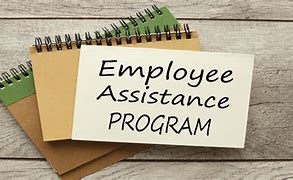When companies compete for the best employees, the quality of their benefits packages is a key differentiator. Prospective employees look for a comprehensive package that will improve their financial condition and help them prepare for the future. An IRS Section 127 Educational Assistance Program (EAP) offer long-term rewards for employees and their employers improve employee recruitment, loyalty, and retention.
IRS Section 127 enables an employer to exclude from an employee’s reported income up to $5,250 per year in employer-provided educational reimbursements. Employers are not required to provide educational assistance under Section 127, but if they do, the assistance must be offered to all employees on a non-discriminatory basis that does not favor highly-compensated personnel.
Small business owners may use an EAP to help pay college costs for their adult children and grandchildren with pre-tax dollars. In establishing an EAP, business owners can take advantage of the program’s ability to transfer family income to the lower tax brackets of a child or grandchild through the wages paid to them. They accomplish this by paying up to $5,250 per year of tax exempt tuition for family members attending college.
Covered Educational Expenses
An employer’s EAP pays tuition and fees for college courses at the undergraduate and graduate levels. Employers cannot include reimbursement for the cost of any material that an employee retains such as books and equipment.
An employer may make advance payments to an employee prior to the beginning of an approved course. A percentage of employers choose this method and then settle up after completion of the course when all terms of the EAP have been satisfied. However, it’s more common for an employer to reimburse employees upon the completion of a course.
An employer may require that employees repay any reimbursements received within a defined period of time prior to their voluntarily resignation. The most common period for a voluntary separation repayment requirement is one year.
Courses of Study
Employers can pay tuition for courses in any subject area that is not a sport, hobby, or game. Courses do not need to be offered by a college. Post-secondary vocational training programs are also eligible. Employers may require that courses be relevant to the employee’s current job or, more commonly, to a field that holds value to the employer in a future position that the employee may attain. The employer can set other requirements, such as that the EAP will only reimburse employees for courses with a grade of A or B.
Employers Offering EAP’s
Organizations offering EAP’s may be corporations, LLC’s, partnerships, or sole proprietorships. Owners and stockholders with more than 5% of the company’s stock may not receive EAP benefits.
There is no minimum number of employees for an employer to set up an EAP. Even an employer with only one employee (such as a child or grandchild) can offer an EAP. Full-time employees are eligible to participate in EAP’s after being employed for a defined period of time. Part-time and seasonal employees may also be deemed eligible for the EAP at the employer’s discretion.
About 92% of employers offer educational benefits of some kind, according to a survey by the International Foundation of Employee Benefit Plans (IFEBT), for a total annual value of $22 billion. Among all employers, 52% offer EAP’s.
Despite the widespread availability of tuition refund programs and the many benefits that accrue to employees who use them, only 2% to 5% of employees nationwide participate in an EAP. According to the IFEBT, a staggering 43% of working people are unaware that their employer even offers an EAP. In considering the ability of a tuition refund plan to advance the education and career of an employee, such programs are greatly underutilized.
Large Employers (50+ employees): Section 127 programs are most often used by employees for night classes after the workday has ended. However, they also help college students who are studying for a bachelor’s degree and have part- or full-time jobs. These students should check with their employer regarding their eligibility for its EAP. If the employer doesn’t offer one, students should consider seeking another employer who does offer an EAP as part of its benefits package.
Since the pandemic made hiring for entry-level jobs more difficult, there has arisen a strong trend in the retail, restaurant, and hotel industries to offer increasingly generous benefits packages, including EAP’s, to entice the workers that they need. Below are a few of the large employers in this industry who hire high school and college students and offer EAP’s:
- McDonald’s provides its restaurant employees with an IRS 127 EAP. They have lowered their eligibility requirements from 9 months to 90 days of employment and have dropped weekly shift minimums from 20 to 15 hours.
- Target employees who want to pursue degrees can receive tuition support of up to $5,250 annually for a bachelor’s or master’s degree.
- Dunkin’ corporate employees are eligible for tuition reimbursement of up to $5,250 annually after six months of service.
- Best Buy reimburses employees up to $3,500 a year for undergraduate tuition expenses and up to $5,250 a year for graduate-level coursework.
- Chipotle’s reimburses up to $5,250 a year for courses in a range of majors.
- The Gap covers up to 100% of tuition and fees for two classes per term for a total of up to $5,250 annually for employees who pursue job-related skills.
- Taco Bell employees may pursue bachelor’s or master’s degree and receive tuition reimbursement of up to $5,250 a year from the company’s EAP.
Small Business Owners (Up to 50 employees): Adult children participating in their family’s small business EAP must be:
- 21 years of age and financially independent for tax purposes (not claimed as a dependent on parent’s tax return), and
- Formally, factually, and consistently employed by the employer on a part- or full-time basis and compensated by reasonable wages.
Grandchildren participating in a small business owner’s EAP must be:
- An age eligible for employment according to state law, and
- Formally, factually, and consistently employed by the employer on a part- or full-time basis and compensated by reasonable wages.
Since an EAP must be available on the same terms to all employees, it may not be desirable for a small business that has non-family employees unless it the EAP is also intended to be a means of recruiting and retaining employees.


Recent Comments